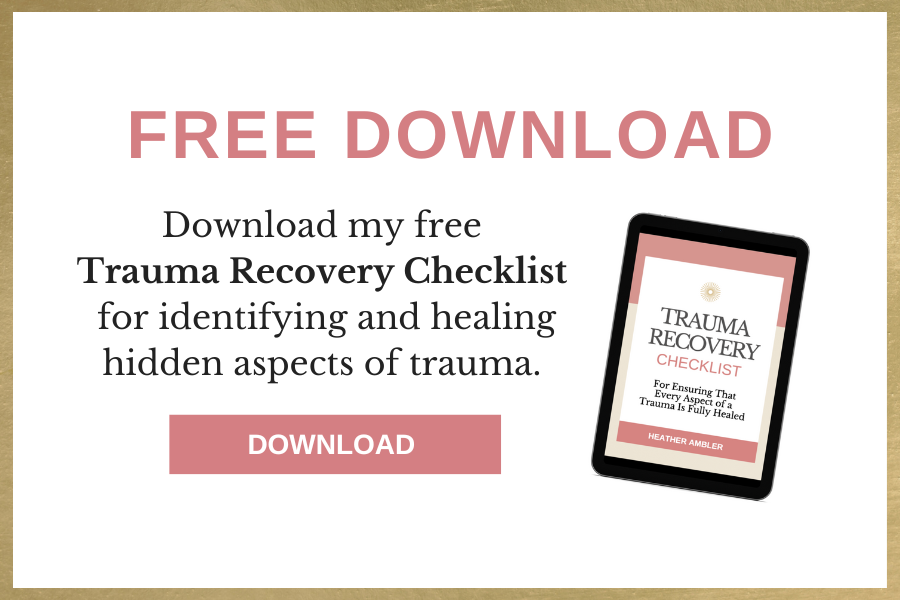The Facts Don't Matter: The Primacy of Emotional Truth in EFT
- Heather Ambler
- Jan 30, 2023
- 3 min read
Updated: Dec 4, 2023

The facts don't matter? How can that be? What does that even mean? Let me explain.
If you've had a traumatic experience, but you don't remember exactly what happened, you can still use EFT to completely heal and release the trauma.
What matters is how you feel when you think about what you do remember. And even if what you "remember" is factually inaccurate, that's okay.
Again, what matters is your emotional truth.
What does "emotional truth" mean? To help illustrate this concept, here's a list of things that your emotional truth is not:
What you think you should be feeling
What someone else thinks you should be feeling
What you think is the appropriate response to what happened
Your intellectual understanding of what happened
Someone else's intellectual understanding of what happened
Which is not to say that these things don't have their place. They do. But that place is not an EFT session.
Let me modify that. It's fine for those things to enter into an EFT session, and they often do.
However, it's important to acknowledge them, and then set them aside for the time being, so that you can focus on your emotional truth.
Your emotional truth is how you actually feel about something, regardless of whether or not you want to feel that way, think you should feel that way, or think that it makes sense to feel that way.
Some people find it challenging to determine what their emotional truth is.
For example, when asked, "How do you feel when you think about that night when your father beat you?" they might say, "I think he was having a hard day," or, "He had a really tough childhood. I'm sure he was doing the best he could."
While transcendent perspectives like these show a lot of compassion, they are not the person's emotional truth about what happened.
They are the person's intellectual and/or spiritual understanding of what happened.
Again, these are valuable in and of themselves, but what is necessary in order to use EFT to heal the trauma is for the person to focus on their emotional truth.
In this case, the person's emotional truth about being beaten might be fear, sadness, and anger.
It's also possible that the person won't know what to call the emotion(s) they're feeling, but they will know that it hurts, and that is enough to work with.
So we just focus on the painful memory, by either talking about it or using tapping statements about it, and tap it out until the memory has no emotional charge.
People often say to me about early childhood trauma: "How can I tap this out if I can't even remember exactly what happened?"
My response is always, "Exactly what happened doesn't even matter."
This is not a court of law, this is a healing session.
Do you have a sense of how you feel when you turn your attention toward what you think happened? Yes? Then that's all that matters.
This is where tapping statements like the following can be very effective:
"I don't remember exactly what happened, but when I think about that night, I feel terrified and sad."
We just begin where we are, and tap until it doesn't hurt anymore.
By then (and oftentimes even before then), the next statement will most likely reveal itself, and then we tap that out, and continue in that fashion until the whole thing is healed.
How do you know when it's healed? When you can turn your attention toward the event, or the time period, or the person, or all of the above, and it doesn't hurt anymore.
And that will be your new emotional truth. Peace. The sweet relief of healing. Freedom.
PLEASE NOTE
When doing EFT tapping on your own, if you aren't able to completely heal the issue you're working on, so that when you think about it, it no longer causes any stress, emotional pain, anger, or fear, I recommend working with a professional EFT practitioner. If you decide that this is the best course of action for you, and you'd like to work with me, click here to schedule an EFT session or free consultation.

BY HEATHER AMBLER
Heather Ambler is an EFT practitioner and mindset coach in California. Through her private practice and online programs, she’s helped over 14,000 people in 81 countries heal the pain of losing a loved one, recover from trauma, release fears, erase limiting beliefs, increase confidence, and achieve goals. If you could use some help with any of these things, click here to learn more and schedule an EFT session or free consultation.








































































































